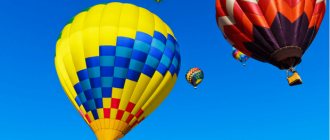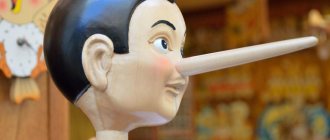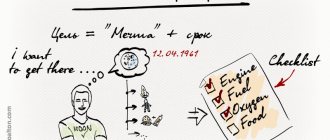Almost everyone these days is familiar with the situation when we are sitting on the couch with a book and only manage to read two pages because we receive an SMS message and decide to respond to it. Communication is delayed. When we finally get back to reading, an email notification arrives. We read it and at the same time decide to check what is happening on social networks. We update the news feed and scroll, scroll, scroll...
Two hours later, we find out we're still on page two of the book, but now we know what the six YouTubers ate during the day. Then we discover that reading the book has taken a long time and there is not enough time again... In fact, you have time, and it is more than enough, your problem is simply the inability to concentrate, plan your activities and sometimes stress , which prevents you from concentrating on completing an important task.
In the modern world there is a battle for the most valuable resource - your attention . Don't believe me? Take a look around. Manufacturers, TV shows, celebrities are fighting among themselves... even your child is fighting with the TV/computer for your attention. And everyone is trying to attract him for their own purposes.
There are so many “distractors” today that concentration is a huge challenge for many of us. Of course, we are talking not only about personal life, but also about work.
Focusing attention is not a limitless resource of our body, so it should be managed wisely.
If you've reached this point and are already impatient to get clear advice, go to the point "How to concentrate on one thing and not get distracted?" For those who are more diligent and patient, I recommend reading the article in order.
Health status
It's no secret that the quality and duration of night's sleep directly affect our attention. However, not many people know that too much sleep is just as harmful as too little sleep. In both cases, we feel overwhelmed and lethargic, and concentration is out of the question. Each person needs a different number of hours for proper sleep. In general, it should be at least seven hours. Try to monitor your condition, and once you determine what sleep duration is ideal for you personally, stick to it on a regular basis.
Nutrition also plays an important role. You've probably noticed how difficult it is to concentrate when we overeat or, on the contrary, feel hungry. Both have a negative impact on the health of the body, which, in turn, has a detrimental effect on the brain. Not only attention begins to suffer, but also memory. Try to diversify your diet as much as possible, consuming enough protein, fiber, and carbohydrates every day. Don't avoid sweets, but reduce your consumption if possible.
And finally, stress. It exhausts all body systems and disrupts their functioning, which also affects sleep and appetite, creating a vicious circle. Chronic stress can lead to much more serious problems, including mental problems. How to concentrate in this case? It is very important not to put off solving your problems and work through them as they arise. Remember that asking for help is not a sign of weakness. It just means that you are a living person.
Concentration training for a child
Learning methods to improve concentration is necessary not only for adults, but also for children. This ability is especially important at school, when you need to quickly concentrate on a lesson or when doing homework. For younger children, practicing focusing is a good start to preparation for school life.
Exercises for the little ones:
- Read any story to your child - the baby will receive instructions to clap his hands whenever he hears a certain name or the name of an object.
- Together with your child, look for differences in similar images, and train him to accurately redraw them in accordance with the original drawing.
- Together, create long, colorful, meaningful sentences that you alternate when reciting - each adding one word to the sentence and repeating what was said earlier.
Exercises for older children:
- Write a short text (2-3 paragraphs) in which you make various mistakes. Their complexity should correspond to the age of the child. You can also practice spelling (assuming your child is familiar with it), including dashes and commas between sentences. The goal of the game is to highlight errors and discrepancies in the text.
- The principle of the next method is similar to the first, slightly edited. But in the text, the child looks for incorrect letters and symbols, but words. Use longer text, one page in size. Double the words in sentences. While reading, the child should highlight all meaningless doublings. For example: “I went to school and I met my friend.”
- Write words in which the letters are reversed. The child's task is to decipher the words. To train younger children, use only 3-4 letters (sel - forest, kovl - wolf), for older children you can use longer words (fortekal - potato). In a simpler version, you can store the beginning or ending of a word, which will indicate a possible solution.
- Great for practicing games (checkers, chess). Any board game that requires patience and following the rules will do. Juggling and other similar activities are suitable for physical activity.
Multitasking
As amazing as the human brain may seem to us, even it has its limitations. Multitasking is almost as harmful a factor as poor sleep and unsystematic eating. In this regard, our brain is very similar to a computer: it begins to freeze if there are many “programs” or tasks running. In other words, the more we plan to do in one time period, the more difficult it is for us to focus on completing one single, or even the main task. Consequently, its quality will suffer, which will only add to our own uncertainty. How to concentrate if you have a lot to do? We'll talk about this a little later.
14:00 - drink a large glass of water
pexels.com
Mild dehydration can impair cognitive performance, especially when performing tasks that require your attention, executive functions, and motor coordination. Keep a reusable bottle with you and fill it with water regularly so you can see how much you're drinking.
Routine, monotony and boredom
No matter how much you love what you do every day, sooner or later you will be overtaken by a feeling of boredom. And the point is not that what was once a favorite activity has ceased to be such, to arouse interest and inspiration. However, when we do the same thing over a period of time, our brain quite naturally goes into energy conservation mode. Consequently, focusing becomes more difficult. This usually happens when we get stuck at one level of complexity in a workflow. Or progress is being made, but not fast enough. We’ll tell you later how to concentrate in this situation.
We found out what prevents us from concentrating on one task. It turns out that it’s not always about the surrounding reality, and it’s often worth thinking about your own lifestyle. However, we should not forget that everything in nature is interconnected. What happens in our bodies and minds can be a direct reflection of the environment in which we live or spend most of our lives. And vice versa.
Finally, we come to the main question of how to focus on one thing without being scattered among other things and concerns. So where to start? How to direct and keep your attention on what is really important and necessary?
Exercises to develop attention
- Take a close look at your office or room at home. Choose one subject and turn your full attention to it. You need to look at it for a couple of minutes. For example, a flower in a pot. Without touching it, you need to try to understand what kind of surface the pot has (smooth, ribbed, rough), what colors and shapes the leaves of the flower have, how the shadow falls. By doing this simple exercise every day, you can gradually learn to concentrate on more important things.
- You can use the children's game "Find the Differences". Find special pictures with several differences. The more there are, the better. Compare two images and find different details that are different. This exercise is great for developing attention to detail.
- A fairy tale can also be an excellent exercise for developing concentration. You can do the exercise with your children or simply by mentally composing a fairy tale involving surrounding objects. It's quite fun and helps keep your attention longer.
Article updated 03/31/2020
Formulate a goal and plan
If you don’t know where you’re going, you’ll never get anywhere. The situation is similar with any task: if you do it without having any specific goal, it is unlikely that anything will come of it. When we work for the sake of work, study for the sake of the very fact of studying, engage in creativity for the sake of creativity itself - this is a deliberately losing option. Indeed, in addition to the fact that we do not achieve tangible progress, on top of everything else, we waste our strength, energy and, of course, time. And they, in turn, are invaluable resources that, when used correctly, help achieve great success.
To focus your attention on the one thing that is most important to you, set yourself a clear and, most importantly, achievable goal. This can be either a short-term goal (up to about five days) or a long-term goal (up to a month or more). Choose the option that suits you personally. It is very useful in such situations to know your personal characteristics. What motivates you more: getting results as soon as possible or doing everything gradually, without rushing?
In addition to setting a goal, create your own individual plan for completing a particular task. This is best done in writing. A goal broken down into stages of its implementation seems more achievable and realistic. This way you will clearly understand what exactly and in what order you need to do to get the desired result. In addition, the plan will prevent you from forgetting anything important, and you will not have to keep everything solely in your head, which will give you additional energy. Focus on what matters most, with a clear goal and a plan to achieve it, and your attention will be much more stable.
Meditation
Meditation is a technique of deepening concentration, focusing on one stimulus or action, ignoring all other stimuli.
Other methods use external stimuli as a focus for concentration. A simple exercise for beginners is clock meditation, where a person with his eyes closed listens to the ticking of a clock counting down the current seconds. To make sure that you are not distracted by other topics, you can count the ticks and, opening your eyes, check whether the counted time matches the one shown on the clock. It may not be possible to focus on the ticking the first or second time; It is important to continue to learn concentration and improve this skill.
If you want to use meditation to improve your concentration, follow a few simple steps. Don't meditate with a full stomach. Focus solely on your breathing. Proceed as follows:
- find a pleasant, not noisy place;
- sit on the floor or on a chair, place your palms on your knees;
- close your eyes, take a deep breath;
- exhale slowly;
- repeat several times, open your eyes.
This technique will purify your thoughts and spirit. After meditation you will feel calmer and cleaner.
Prepare your work area
The environment in which we work, study or engage in creativity sets the pace for the entire work process and directly affects its quality. It is important to adjust the environment so that it is comfortable for you to work in it. After all, we are all very different: some people need everything to be in their place to concentrate, while others are inspired by creative chaos.
True, often a large number of objects in the work area only complicate the process, as a person who has surrounded himself on all sides with stationery, papers and other things that, according to him, cannot do without, often says. Even so, try to free up the work area as much as possible, leaving only the essentials. You can always take everything else out of drawers or shelves. The fact is that our brain perceives a large number of things in the workplace as multitasking, which we talked about. There is simply not enough attention, because it is distributed to every nearby object.
In addition to answering the question of how to focus on one thing, it is important to talk about the benefits of silence. Even if you find it easy to concentrate while working in a noisy environment, your brain still has to process the information you hear. Which, in turn, takes away additional energy from you. Make sure that you are not disturbed by extraneous sounds in your work area, and if this is not possible, take breaks by going to a quieter place. And do not forget to ventilate the work area.
1:00 pm - Talk to someone during your lunch break
gifer.com
People who are socially active, whether in person or over the phone, experience slower cognitive decline and are less likely to develop Alzheimer's disease.
If you have no one to talk to during your lunch break, then repeat the alphabet in reverse order. Simply memorizing information, such as the alphabet or multiplication tables, is not a problem for your adult brain, but mixing them up, such as reciting them backwards, targets new areas of your brain that you may not have trained.
see also
50 interesting facts about human psychology
Come up with your own rules and restrictions
When considering how to focus on school, work, or creativity, it's important to be aware of what distracts you. Social networks, instant messengers, offers from colleagues to take a tea break or just chat with them for a minute or two - all this is great, but only during a really necessary break, which you will talk about later. Appreciate your work and respect your own capabilities. For example, schedule a specific time to check social media and stick to it. If possible, purchase a second phone that will be exclusively for work calls and correspondence.
15:00 - afternoon nap
Gett Images
A NASA study found that pilots had a 54% improvement in alertness after taking a 26-minute nap. If you have the opportunity to take a nap during the day, just make sure you set your alarm to wake up in 30-40 minutes; If you oversleep, there is a risk that after a day's rest you will feel exhausted.
see also
7 foods for brain function
Maintain a balance of work and rest
The phrase “I can’t concentrate at work!” This is often said by those who do not know how to competently distribute their activity. But not only the quality of your work, but also your physical and psychological well-being depends on this. Again, everything is very individual here. Observe your condition and determine the approximate time during which you can calmly do your job without feeling tired, uncomfortable, or irritable. Remember one important thing: it is better to take frequent breaks (10-30 minutes) than to work non-stop with only one hour break a day. Your health is much more important. Try to go for a short walk whenever possible, or at least look out the window to saturate your brain with oxygen. It will also be useful to simply walk around the room.
But how can you focus on work if it turns out that there simply isn’t enough time for a full break? Try breathing techniques and meditation. They can be done without leaving the room. This has a positive effect not only on the functioning of the brain, its memory and ability to concentrate, but also on the entire nervous system. Choose the meditation or breathing practices that suit you best. You will feel their benefits in the near future.
Learning to concentrate
The ability to concentrate is not given to us from birth (which is a pity). Focusing must be practiced, trained like a muscle every day, because there is no magic pill that gives instant results.
The most important thing is not to worry too much about failure. They should serve as lessons from which you draw conclusions. If we constantly get upset and blame ourselves for being weak-willed, it will be even worse. You should treat your mistakes with calmness and composure - it won’t work now, but after a while it will definitely work. The main thing is not to give up!
Take care of your health
No matter how great things we are capable of, we are only human. Like any living organism, it is extremely important for us to maintain our health. Sleep enough hours, make sure your meals are nutritious and regular, and include at least minimal physical activity (exercise, aerobics) in your life. Try to avoid overwork, as it can have more serious consequences than we used to think. Overwork can lead to emotional burnout, an increased risk of colds, and simply chronic stress. Take care of yourself.
Moreover, we should not forget about the importance of psychological health. Set yourself only realistic, feasible goals and objectives. Maintain an active social life, because communication with family, friends, buddies and good colleagues is very beneficial for our psyche. And of course, try to solve problems that concern you - both work and personal - as soon as they arise. Or in the near future.
10:30 - test your hearing
amplifon.com
According to a recent report from The Lancet, hearing loss is the largest modifiable risk factor for dementia. This reduces cognitive function of the brain and increases social isolation and depression. This is why it is so important to monitor your hearing by regularly visiting a doctor and doing special tests. This way, you will not only notice a hearing problem in time, but also, perhaps, begin treatment in a timely manner.
see also
7 Science-Based Ways to Succeed and Achieve Your Goals
Reward yourself
When it comes to focusing on work, school, or creativity, there is one very important point that should not be overlooked. The reward system really makes a huge difference. The thing is that by positively reinforcing our own achievements, we only increase their number in the future, not to mention the fact that this makes it much easier for us to achieve our goals. What’s important is that you should reward yourself even for what you think are the most insignificant victories.
For example, you can reward yourself for each completed item in the plan that we talked about. It could be something small but pleasant: from basic verbal praise to a small purchase. Therefore, when you achieve the goal itself, the reward should be more tangible. Here you can already treat yourself to some good thing, for example, clothes, a delicious dinner at a restaurant, and even a trip to another city or country. This way your brain remembers that any achievement, even a small one, is followed by something very pleasant for you. In the future, it will be easier for you to concentrate on the tasks at hand and, therefore, easier to complete them.
19:00 - choose a book rather than TV
Gett Images
People who read regularly have been shown to have improved reasoning skills, vocabulary, attention span, and critical thinking.
Reading also improves other life skills such as empathy and emotional intelligence.
Don't want to read? Then write the letter by hand. Writing requires subtle muscle control that taxes our brain, and trying to find the right words stimulates the mind and special thinking. In any case, all of the above is the best alternative to watching TV or watching videos on YouTube.
Don't wait for inspiration - just start
And the last thing you need to know is how to concentrate at work or any other activity. Sometimes we spend much more time just collecting our thoughts. Even if we like the task and are fully motivated to complete it, it happens that we never manage to start it. And we are waiting for the right moment when inspiration overtakes us. We are waiting for Monday, the end of vacation, a good mood or simply sunny weather.
This is one of the most common myths that in order to decide to do something, you need to wait for the right moment. You may wait too long or not wait at all. When all you need to do is start. It can be quite difficult, but it's worth it. Just try it. Just as appetite comes during eating, so interest comes during work, study and creative processes. The main thing is to overpower yourself at the very beginning, and then everything will go like clockwork. We can guarantee this to you.
In this article, we told you how to focus and not be distracted from what is important to you. Now you know what factors influence the ability to concentrate, as well as what helps us concentrate on one task for a long time. The work environment really matters. It is important to be able to carefully create it so that you feel as comfortable as possible. However, remember to put your own health and well-being first. If you've tried everything we've talked about in this article and you're still having trouble staying focused, you might want to seriously consider getting some rest. Sometimes a long and quality vacation is all that is needed to return to the work process collected and active.
Remember that our attention is based on interest. Do what you really enjoy, what inspires you to achieve and makes you move forward, no matter what. If you get tangible returns from your business (not only financial, but also emotional), then you are on the right track. Do what you love and love what you do. This is the key not only to any success, but also to a happy life.
Doing only one thing at a time
Active people boast the ability to do several things at the same time, considering this property an enviable honor. While multitasking can help one achieve career heights, it makes one prone to making unintentional mistakes. In terms of concentration, multitasting also has major disadvantages. The main negative factor is constant distraction.
In solving the problem of how to learn not to be distracted and concentrate, you need to do tasks one by one, step by step, and determine priorities. The habit of starting with simple tasks and ending with complex things will have to be abandoned. Tasks that require a lot of attention and creativity should be solved first, ideally in the first half of the day, when the brain is still fresh.
At the same time, important, priority tasks should not be left until they become urgent. Otherwise, their implementation puts a lot of pressure, the person is in a state of stress, in which it becomes several times harder to focus attention.
Information filters
The hero of Bulgakov's story “The Heart of a Dog,” F. F. Preobrazhensky, recommended not reading Soviet newspapers before lunch. In the respect we are interested in, this phrase, although it looks taken out of context, is very aptly suited to describe the indicated requirement. After all, there is an idea that an educated business person should read the newspaper at breakfast/on the way to work (in our time, watching news reports on TV or on the Internet would also be an appropriate option). We know about the nature of the information offered by the media - in most cases it is something exciting and emotional (much more often with a touch of negativity). Having received such data in the morning, the brain already begins to function at full capacity, processing it, and even coping with the surging emotions. As a result, when it comes to solving production problems, he is too busy with other things - falling macroeconomic indicators, impending mass layoffs, etc. Obviously, this is not just a nuisance and distraction, but affects productivity globally. Of course, you won’t be able to completely avoid information flows, but you can filter them.
Medications
You can increase concentration and improve the general condition of the body with the help of a number of medications:
- Glycine. Relieves stress, calms, increases brain performance and attention.
- Vitrum memory. Medicine based on herbal ingredients. Enhances alertness, normalizes blood circulation and, as a result, brain nutrition.
- Undevit. Vitamins A, B, C, E, P. Has a general strengthening effect.
- Aminalon. Helps remove toxins accumulated in the body and restore the functioning of the nervous system, thereby improving performance and concentration.
- Bilobil. Improves sleep and mental activity, eliminates anxiety.
- Intellan. Helps cope with depression and eliminates forgetfulness.
- Ginkgo biloba. Improves memory and the ability to maintain attention, eliminates insomnia and dizziness.
The listed drugs have virtually no contraindications or side effects. However, it is recommended to consult a doctor before using them.
21:00 - drink cocoa, not wine
pexels.com
While alcohol can help you fall asleep, it can also have a really adverse effect on your REM or rapid eye movement (REM) sleep cycle (the most restorative period of your sleep). As a result, drinking alcohol before bed will leave you feeling tired, groggy, and less alert the next day.
Positive attitude
Obviously, if you consider a lesson, class or meeting as torture, no methods will help you deceive yourself. Therefore, it is important to be able to find positive motivation, change your attitude and see the benefit in any, even seemingly extremely boring event. One way or another, you can be a little Socrates and see such moments in everything - your least favorite lesson or lesson, the most boring report from the sales department, etc. Develop positive thinking and very soon you will notice that you have become much easier to relate to many previously intolerant things. And more importantly, you will see that life is not full of limiting and unnecessary things, but useful opportunities that can make you a little better every day.
We adopt experience
— Watch how other people concentrate . Look at a person who is captivated by an interesting film or book. All their receptors are aimed at perceiving what is happening. Try to copy their behavior.
- Decide what, or who, you want to focus on . Have you noticed how when people become close, they communicate a lot with each other, they become similar? They adopt each other's phrases, behavior patterns and habits. When you pay attention to something and concentrate on it, we adopt some properties of this object.
- Surround yourself with well-organized people . (This follows from the previous point) If you want to learn concentration, be with those people who know how to do it.
— What we train trains . If you decide to train concentration, just do it, study it, try different exercises and techniques. What we pay attention to will definitely improve and train.











